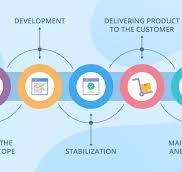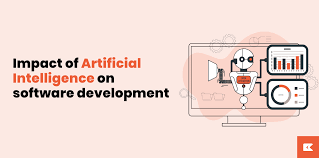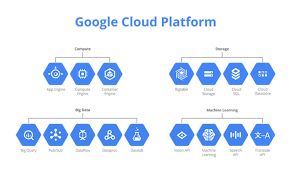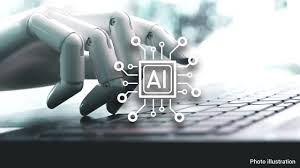Exploring the Evolving Landscape: The Future of Network Security in the Cloud
The Future of Network Security in the Cloud
As businesses increasingly migrate to cloud environments, the landscape of network security is undergoing significant transformation. The future of network security in the cloud promises to be both challenging and innovative, as organizations strive to protect their data while taking advantage of the flexibility and scalability that cloud computing offers.
Embracing Zero Trust Architecture
One of the most significant shifts in network security is the adoption of a Zero Trust architecture. Unlike traditional security models that rely on perimeter defenses, Zero Trust operates on the principle that threats can originate from both inside and outside the network. This approach requires continuous verification of user identities and device integrity, regardless of their location or network.
Cloud providers are increasingly integrating Zero Trust principles into their platforms, offering tools that enable granular access controls and real-time monitoring. This shift ensures that sensitive data remains protected even as users access resources from various locations and devices.
Advanced Threat Detection with AI and Machine Learning
The use of artificial intelligence (AI) and machine learning (ML) is revolutionizing threat detection and response in cloud environments. These technologies enable faster identification of anomalies and potential threats by analyzing vast amounts of data in real time.
By leveraging AI-driven analytics, organizations can proactively identify patterns indicative of cyber attacks or unauthorized access attempts. Machine learning algorithms continuously improve over time, enhancing their ability to predict and mitigate emerging threats before they cause harm.
Enhanced Encryption Techniques
As data breaches become more sophisticated, encryption remains a cornerstone of cloud security. Future advancements in encryption techniques will focus on protecting data at rest, in transit, and during processing.
Homomorphic encryption, for example, allows computations to be performed on encrypted data without decrypting it first. This innovation ensures that sensitive information remains secure throughout its lifecycle while enabling complex operations to be conducted seamlessly within the cloud environment.
The Rise of Secure Access Service Edge (SASE)
SASE is an emerging framework that combines wide area networking capabilities with comprehensive security functions delivered through a unified service model. By integrating elements such as secure web gateways, firewall-as-a-service (FWaaS), and zero trust network access (ZTNA), SASE provides enhanced protection for distributed workforces accessing cloud resources.
This approach simplifies network management by consolidating multiple security services into a single platform while ensuring consistent policy enforcement across all users regardless of their location or device type.
The Importance of Continuous Monitoring
Continuous monitoring plays a crucial role in maintaining robust network security within cloud environments. Organizations must implement comprehensive monitoring solutions capable of detecting suspicious activities across all layers—from infrastructure components to application-level interactions.
By leveraging advanced logging mechanisms coupled with automated alert systems powered by AI/ML technologies mentioned earlier—organizations can swiftly respond when potential threats arise—minimizing damage caused by breaches or unauthorized accesses effectively over time!
A Collaborative Approach to Security
The future success lies not only within technological advancements but also through collaboration between enterprises themselves along with trusted third-party vendors like CSPs (Cloud Service Providers). Establishing clear communication channels ensures everyone involved understands roles/responsibilities regarding safeguarding critical assets hosted off-premises thereby fostering trust among stakeholders alike!
Conclusion
The future holds exciting possibilities for enhancing overall efficacy surrounding securing networks deployed onto public/private/hybrid clouds worldwide! With continued innovation driven primarily via cutting-edge technologies such as AI/ML alongside strategic partnerships formed between key industry players – there exists tremendous potential ensuring maximum protection afforded towards safeguarding invaluable digital assets residing therein today/tomorrow alike!
Exploring the Future of Network Security in the Cloud: Key Questions and Insights
- What is Zero Trust architecture and how does it impact network security in the cloud?
- How are artificial intelligence and machine learning shaping the future of threat detection in cloud environments?
- What advancements can we expect in encryption techniques to enhance data security in the cloud?
- What is Secure Access Service Edge (SASE) and why is it gaining prominence in cloud security strategies?
- Why is continuous monitoring crucial for maintaining robust network security in the cloud?
- How can organizations ensure compliance with regulatory requirements when securing their networks in the cloud?
- What role do collaboration and partnerships play in strengthening network security within cloud environments?
- How can businesses effectively balance convenience and security when adopting cloud-based solutions for their IT infrastructure?
What is Zero Trust architecture and how does it impact network security in the cloud?
Zero Trust architecture is a security concept that challenges the traditional network perimeter model by assuming that threats can originate from both inside and outside the network. In a Zero Trust environment, all users, devices, and applications are considered untrusted until proven otherwise, requiring continuous verification of identities and device integrity. This approach significantly impacts network security in the cloud by enhancing data protection and access controls. By implementing Zero Trust principles, organizations can establish granular security policies, monitor user activities in real time, and mitigate potential threats proactively. Ultimately, Zero Trust architecture strengthens overall network security in the cloud by prioritizing data confidentiality and minimizing the risk of unauthorized access or data breaches.
How are artificial intelligence and machine learning shaping the future of threat detection in cloud environments?
Artificial intelligence (AI) and machine learning (ML) are fundamentally transforming threat detection in cloud environments by enabling faster, more accurate identification of potential security threats. These technologies analyze vast amounts of data in real time, identifying patterns and anomalies that may indicate malicious activity. AI and ML algorithms continuously learn from new data, improving their ability to predict and respond to emerging threats over time. By automating the detection process, these technologies reduce the reliance on manual monitoring and allow for quicker response times to security incidents. This proactive approach not only enhances the overall security posture of cloud environments but also helps organizations stay ahead of increasingly sophisticated cyber threats.
What advancements can we expect in encryption techniques to enhance data security in the cloud?
In the realm of network security in the cloud, significant advancements in encryption techniques are poised to revolutionize data protection. Expect to witness the rise of innovative encryption methods designed to safeguard data at rest, in transit, and during processing within cloud environments. Homomorphic encryption, for instance, enables computations to be performed on encrypted data without decryption, ensuring continuous security throughout data operations. Additionally, advancements in quantum-resistant cryptography will play a crucial role in fortifying cloud security against emerging threats. With a focus on enhancing confidentiality and integrity, these evolving encryption techniques promise to elevate data security standards in the cloud landscape.
What is Secure Access Service Edge (SASE) and why is it gaining prominence in cloud security strategies?
Secure Access Service Edge (SASE) is an innovative framework that combines networking and security functions into a unified cloud-based service model. SASE is gaining prominence in cloud security strategies due to its ability to provide comprehensive protection for distributed workforces accessing cloud resources from various locations and devices. By integrating features such as secure web gateways, firewall-as-a-service (FWaaS), and zero trust network access (ZTNA), SASE simplifies network management while ensuring consistent policy enforcement across all users. This approach not only enhances security posture but also improves user experience by offering seamless and secure access to cloud applications and data, making it a compelling solution for organizations looking to strengthen their network security in the cloud.
Why is continuous monitoring crucial for maintaining robust network security in the cloud?
Continuous monitoring is paramount for upholding robust network security in the cloud due to the dynamic and ever-evolving nature of cyber threats. By implementing continuous monitoring mechanisms, organizations can actively detect and respond to unauthorized activities, potential vulnerabilities, and suspicious behavior in real time. This proactive approach enables swift identification and mitigation of security incidents, minimizing the impact of breaches and ensuring the integrity of data stored in cloud environments. Additionally, continuous monitoring allows for compliance with regulatory requirements and industry standards by providing a comprehensive view of network activity and adherence to security policies. In essence, continuous monitoring serves as a vital tool in safeguarding cloud infrastructure against emerging threats and maintaining a secure digital environment for organizations and their stakeholders.
How can organizations ensure compliance with regulatory requirements when securing their networks in the cloud?
Ensuring compliance with regulatory requirements while securing networks in the cloud is a paramount concern for organizations. To address this challenge, businesses must implement robust security measures that align with relevant regulations and standards. This includes conducting regular audits, maintaining detailed documentation of security practices, and implementing encryption protocols to protect sensitive data. Additionally, organizations should leverage cloud service providers that adhere to industry-specific compliance certifications and offer built-in security features to help meet regulatory obligations. By prioritizing compliance as an integral part of their cloud security strategy, organizations can mitigate risks and demonstrate a commitment to maintaining the integrity and confidentiality of their data in accordance with legal mandates.
What role do collaboration and partnerships play in strengthening network security within cloud environments?
Collaboration and partnerships play a crucial role in strengthening network security within cloud environments. In an ever-evolving threat landscape, no single entity can address all security challenges alone. By fostering collaborations between organizations, cloud service providers, and cybersecurity experts, a collective approach to security can be established. Sharing knowledge, best practices, and threat intelligence enables stakeholders to stay ahead of emerging threats and vulnerabilities. Additionally, partnerships allow for the development of innovative security solutions that address the complex nature of cloud environments effectively. Together, through collaboration and partnerships, entities can create a more resilient and secure network infrastructure in the cloud.
How can businesses effectively balance convenience and security when adopting cloud-based solutions for their IT infrastructure?
Businesses face the challenge of effectively balancing convenience and security when adopting cloud-based solutions for their IT infrastructure. While cloud technologies offer unparalleled convenience in terms of scalability, flexibility, and cost-efficiency, ensuring robust security measures is paramount to safeguard sensitive data and protect against cyber threats. To strike this balance, businesses must implement a comprehensive security strategy that incorporates encryption, access controls, continuous monitoring, and regular audits. By prioritizing security without compromising usability, businesses can leverage the benefits of cloud-based solutions while maintaining the integrity and confidentiality of their data.









